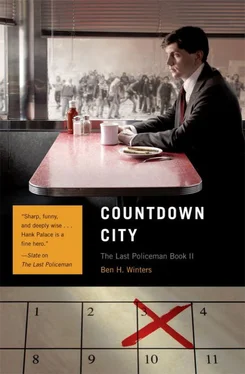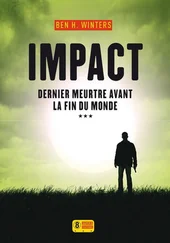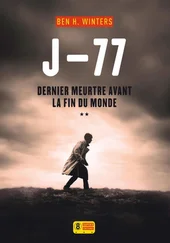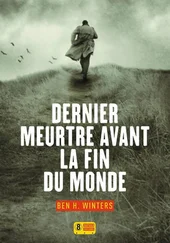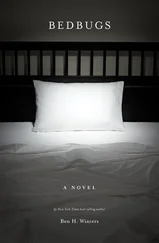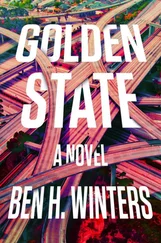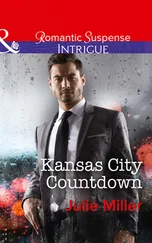“The Governor’s Medal,” I say to myself quietly, turning a page, nodding appreciatively. “Very nice, O. Cavatone. Congratulations.”
Halfway down the fourth page, the quick log-line bursts of information give way to one long detailed paragraph, delving in some detail into one particular incident. It begins with the arrest report: four suspects accused of trespassing. The location is a slaughterhouse operated by a dairy farm called Blue Moon, near Rumney. The apparent mission of the alleged trespassers was to install hidden videotaping equipment, but they tripped alarms and were apprehended fleeing the scene. Subsequently, the suspects explained to the arresting officer—O. Cavatone—that their action was intended to gather evidence of inhumane and unhealthful treatment of the cattle: to “provoke horror and outrage,” says the report, “toward Blue Moon in particular and U.S. agricultural practice in general.”
The case rings a bell, the thing about the slaughterhouse. I get up and pace around the dark kitchen a little bit, try to remember it. According to the date on the file it was two and a half years ago, this arrest. I probably read about it in the Monitor , or maybe they went over it with us in the academy. An interesting sort of crime, an unusual category of motivation for this part of the world: political provocation, college kids in tie-dyed ski masks, planting video cameras.
Houdini murmurs in his sleep, growling a little. I sip my tea. It’s cold. I lift the file again, read the names of the perpetrators, all of whom had been charged with trespassing and two counts of criminal mischief. Marcus Norman, Julia Stone, Annabelle Demetrios, Frank Cignal.
I read these names again, study them, tapping my fingers. Why does O. Cavatone’s file include a detailed report of this particular case, why the full paragraph on this one arrest, when there must have been hundreds over the course of a six-year career?
The answer, as it turns out, is not hard to find. It is, indeed, highlighted—literally highlighted, on the next page of the record.
“Charges against all suspects dismissed; O. Cavatone failing on several occasions to provide appropriate testimony.”
The Blue Moon incident is the end of Brett Cavatone’s file. There is no discharge information, no report given of his dismissal or early retirement. The rest of his story I already know, more or less: Brett leaves the state troopers a few months later, at age thirty, and takes a job at his father-in-law’s new pizza restaurant. And then, three days ago, he disappears.
I rise and stretch, feeling my bones ache along the length of my body. My body is crying out for sleep—for sleep or for coffee. There’s a dull throbbing at my temple, and it’s only when I raise one finger to the small divot beside my eye do I recall that I was shot earlier today with a staple gun. I gently move Houdini over and lie down beside him in the darkness and then a few minutes later I’m up again, reopening the file—reading it again—and again—unable to stop—the impulse to discover speaking up in me like morning birds, like unruly children.
* * *
“I’ll have the lobster Thermidor,” says Detective Culverson.
“We don’t have that,” says Ruth-Ann, sighing elaborately.
“Coq au vin?”
“We don’t have that either.”
“You’re kidding.”
“Sorry.”
It’s midmorning the next day, Friday, and Culverson and Ruth-Ann are doing the kind of flirtatious give-and-take that I normally find amusing, but now I’m rat-a-tatting my fingers on the edge of the booth, shifting impatiently while they go through their bit. Detective McGully isn’t here yet, but that doesn’t matter, it’s Culverson’s opinion I want.
“Here,” I say, as soon as Ruth-Ann turns and heads back to the kitchen. “Okay.” I slide him the file. Not the whole thing, just the last two pages. “Tell me what you see.”
“This is the Bucket List guy?” He slowly unfolds his reading glasses. “Your babysitter’s boyfriend?”
“Husband.”
“Oh, I thought boyfriend.”
“Can you just have a look?”
Culverson lifts the pages and scans, glasses perched on the end of his nose, and quickly comes to the exact same conclusion that I did. “Looks like he got fired.”
“Yes.”
“But someone doesn’t want to say that.”
“Yes!” I beam at him. “Exactly.”
“Where the hell is McGully?” says Culverson, straightening up and peering at the door.
“I don’t know,” I say quickly, and tap the file. “But the question is why, right? Why is this guy fired? I mean, so he fails to testify.”
“Right. But he’s not getting fired for a no-show.”
“Right.” Pause. Take a breath. “But, what if he couldn’t show up.”
“What do you mean? You saying he was a drunk?”
Ruth-Ann returns with two bowls of oatmeal. “Lobster Thermidor,” she says, putting one down in front of me. “And coq au vin,” giving Culverson his.
“No,” I say, when she’s gone. “No, not a drunk.”
“Listen, Stretch, if you got some kind of stunning breakthrough to lay on me, then go ahead and do it,” says Culverson. He tucks a napkin into the collar of his shirt, spreads it down across his chest like a bib. “Maybe you haven’t heard, but life is short.”
“Brett named the specials.”
“What?”
“At the pizza place. Rocky told me—that’s the boss, the father-in-law—he told me. Brett leaves the force after this thing at the dairy farm, he comes to work at his wife’s father’s pizza restaurant, and one of his first jobs is: name the specials. All of them get classic rock names. Layla: a very unusual and specific name. Hazel: unusual and specific. Sally Simpson: unusual and specific. And then—Julia.”
He looks where I’m pointing, where I’ve laid my finger across the case file, at the list of suspects. Marcus Norman, Julia Stone, Annabelle Demetrios, Frank Cignal.
“Palace.”
“Of all the girls’ names in all the songs in the world?”
“ Palace .”
“Even all the girls’ names in all the Beatles songs? Who picks Julia?” I jab my finger at the page. “Who but a man with a woman on his mind?”
“I’m not really a Beatles man,” says Culverson, stirring honey into his oatmeal. “You got any Earth, Wind, and Fire related clues?”
“Come on, Culverson.”
“I’m teasing you.”
“I know. But do you think it makes sense?”
“Honestly? No.” He grins. “You have gone for a walk, my young friend. You have wandered so far from the available evidence that I cannot see you anymore, tall as a telephone pole though you may be.”
“Maybe,” I say. I cross my arms. “But I’m right.”
“It’s possible,” he says. I’ve known Culverson for longer than anyone now living, except for my sister. Long ago, when I was still a child, it was Detective Culverson who solved the murder of my mother. “And hey, you know what? The world’s about to blow up. So, you know, knock yourself out. You have a last-known address for young Julia?”
“Yeah,” I say, tapping the file. “Durham.”
“Durham?” he says.
“Yeah. At the time of the incident, she was a rising junior at UNH.”
“So her last-known is on the grounds of the Free Republic. You’re ready to go door to door down there?”
“No. Maybe.” I grit my teeth. This is the hard part. “I actually know someone who might be able to help.”
“Oh yeah?” Culverson raises an eyebrow. “Who’s that?”
I’m saved by the bell. The door chimes, and McGully comes in with an old Samsonite suitcase like a traveling salesman. We look at him, Culverson and I, and Ruth-Ann looks over from her spot at the counter, at old McGully with his suitcase and his boots. No one says anything. That’s it—it’s like he’s already gone, fading from full color to black and white before our eyes. He stands at the threshold of the restaurant, in the antechamber by the cash register where the pictures still hang of the owner, Bob Galicki, shaking hands with various politicians, where there’s an old-fashioned gumball machine. The gumballs are gone now, the glass sphere shattered a long time ago.
Читать дальше
